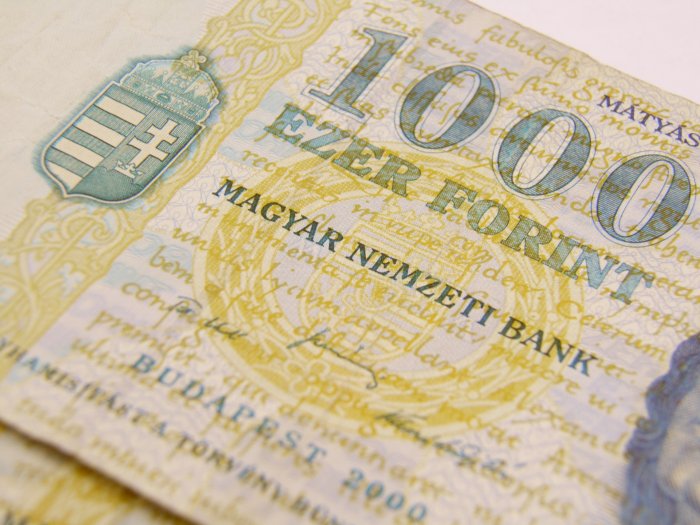Forint drifts in thin trade

The forint was trading at 312.08 to the euro late Thursday on the interbank forex market, practically unchanged from final quotes at 312.10 on Wednesday.
Also at 312.10 to the euro early Thursday, the forint moved between 311.88 and 312.58, after a nine-day low at 312.75 late Wednesday, and an almost one-month high at 308.43 last Friday intraday.
In thin trade as overseas investors were mostly off-line due to the Thanksgiving holiday in the US, the Hungarian currency continued to drift slowly between the pull from expectations for a more aggressive ECB easing in December than previously thought, and the push from central bank hints of more accommodation to come in December in Hungary as well.
Hungaryʼs central bank could "fine-tune" its monetary easing toolkit in December to ease policy due to downward risks to the inflation and economic growth outlook, a senior official at the bank told Reuters Wednesday evening.
"Regarding long-term interest rates and yields (in markets), there is significant further room for monetary easing if necessary," Managing Director of the National Bank of Hungary (MNB) Barnabas Virag said, adding the bank had shifted its focus to targeted unconventional easing tools rather than the base rate.
"We think the MNB is implicitly aiming at weakening the currency in order to support GDP growth," RBS said in a note on Thursday.
Late on Thursday a rate setter of the MNB told Reuters that the central bank had no exchange rate target or specific intent to weaken the forint, but this did not help the currency much as he also confirmed the banks accommodative stance in view of economic growth that should be slower than previous forecasts suggested.
A regular auction of 3-, 5- and 10-year Hungarian government bonds were also not too much supportive as demand fell for the 3- and the 10-year tenor while it grew for the 5-year paper, but the government increased allotment by the maximum 50% for each issue. Yields remained stable.
Healthy demand at a preceding preferential interest rate swap of MNB for domestic banks - non-residents are excluded - compared with mixed demand at the bond auction suggests that local investors were coming back to the government bond market while foreign investors are still waiting on the sidelines for more rises in yields. Secondary market yields on longer-term Hungarian sovereigns have risen about 40bps for the three-year, more than 20bps for the 5-, and 10bps for the 10-year tenor since their historic lows early October. Relative lack of foreign demand is pushing yields up despite the MNBʼs efforts to decrease the governmentʼs financing costs by shepherding local banks into sovereigns.
The share of non-resident holdings in forint debt was 26% end-September this year, down from a peak of 42% at end-2012, while the share of foreign currency debt, calculated in euro, in total debt fell to 33% from 39%. Hungarian financial authorities say it diminishes the countryʼs external vulnerability, but analysts point out that the investment power of resident banks is far from limitless, so scaring away foreign investors could be counterproductive.
The forint traded at 294.00 to the dollar, down from final quotes at 293.89 on Wednesday. On Thursday, it moved between 293.69 and 294.76, after a second more than fifteen-year low this month at 295.48 late Wednesday, and a ten-day high at 287.97 reached last week Thursday.
It was quoted at 287.04 to the Swiss franc, slightly up from 287.47 late Wednesday. Its range on Thursday was 286.99, a four-day high, to 288.23, after a one-week low at 288.88 Wednesday intraday. Since its crash to an all-time low at 378.49 to the franc on January 15 when the Swiss central bank scrapped its cap of 1.20 to the euro, it reached the highest at 281.07 on February 26.
SUPPORT THE BUDAPEST BUSINESS JOURNAL
Producing journalism that is worthy of the name is a costly business. For 27 years, the publishers, editors and reporters of the Budapest Business Journal have striven to bring you business news that works, information that you can trust, that is factual, accurate and presented without fear or favor.
Newspaper organizations across the globe have struggled to find a business model that allows them to continue to excel, without compromising their ability to perform. Most recently, some have experimented with the idea of involving their most important stakeholders, their readers.
We would like to offer that same opportunity to our readers. We would like to invite you to help us deliver the quality business journalism you require. Hit our Support the BBJ button and you can choose the how much and how often you send us your contributions.







